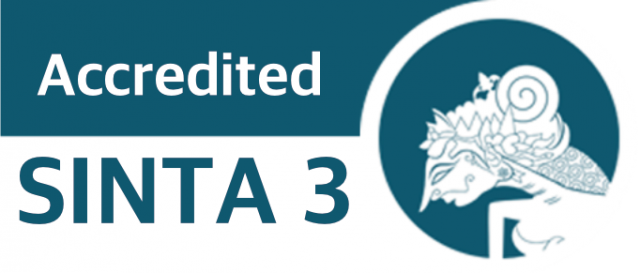Etos Kerja Kristen dan Budaya Mapalus sebagai Perberdayaan Ekonomi Gereja di Minahasa
DOI:
https://doi.org/10.24114/antro.v7i1.24418Keywords:
Protestant Work Ethic, Mapalus, Capitalism.Abstract
This study aims to understand and provide solutions to poverty problems in the Minahasa area, especially the Protestant church in Minahasa. The problem that appears is the lack of the church in carrying out economic empowerment. On the other hand, the Mapalus culture which is the philosophy of the Minahasa people has begun to be displaced by the times. This makes researchers interested in researching Christian Work Ethics and Mapalus culture as economic empowerment for the church in Minahasa. By using sociological and economic studies, the researcher uses classic theory from Max Weber about The Protestant Ethic and Spirit of Capitalism, and Adam Smith about The Wealth of Nations. To address and examine this problem, this study uses qualitative research, using literature study. Data were collected through literature, references, and articles related to the Protestant work ethic, the Minahasa work ethic, and the spirit of capitalism. Capitalism that is meant by researchers is positive capitalism, where capitalism is running straight with the work ethic of Christians. On the other hand, Minahasa, as a research locus, has a work ethic called Mapalus. Although there are differences between the two work ethics, both can enrich the understanding and morals of church members in Minahasa in carrying out economic empowerment.References
Dillard, D dan Raharjo, M.D. (1987). Kapitalisme Dulu dan Sekarang. Jakarta: LEP3ES.
Doyle, P.J., (1986). Teori Sosiologi: Klasik dan Modern. Jakarta: PT Gramedia.
Duchrow, U, (1998). Mengubah Kapitakisme Dunia; Tinjauan Sejarah-Alkirabiah Bagi Aksi Politis. Jakarta: BPK Gunung Mulia.
Haryanto, S, (2015). Sosiologi Agama: Dari Klasik Hingga Postmodern. Yogyakarta: AR-RUZZ Media.
Jones, P, (2009). Pengantar Teori-Teori Sosial: dari Teori Fungsionalisme hingga Post-modernisme. Jakarta: Yayasan Obor Indonesia.
Kalean, H, (2012). Metode Penelitian Kualitatif Interdisipliner bidang Sosial, Budaya, Filsafat, Seni, Agama dan Humaniora. Yogyakarta: Paradigma.
Kristeva, S., dan Sayyid, N., (2015). Kapitalisme, Negara dan Masyarakat. Jogyakarta: Pustaka Pelajar.
Lekacham, R., (2008). Kapitalisme: Teori dan Sejarah Perkembangannya. Yogyakarta: Resist Book.
Lumantow, M., Tampi, G., dan Londa, V., (2017). œPengaruh Budaya Mapalus Terhadap Partisipasi Masyarakat Dalam Pembangunan di Desa Tombasian Atas Kecamatan Kawangkoan Barat Kabupaten Minahasa. Universitas Sam Ratulangi Manado: Jurnal Administrasi Pubik, 3 (46): 1-18. Diunduh di https://ejournal.unsrat.ac.id/index.php/JAP/article/view/16291/15794/ tanggal 26 Februari 2021
Salaki, R.J,, (2014). œMembangun Karakter Generasi Muda Melalui Budaya Mapalus Suku Minahasa. Universitas Negeri Manado: Jurnal Studi Sosial, 6 (1): 47-52. Diunduh di http://lp2m.um.ac.id/wp-content/uploads/2014/03/8.pdf/ tanggal 26 Februari 2021.
Sinamo, J., dan Siadari, E.E., (2011). Teologi Kerja Modern dan Etos Kerja Kristiani. Jakarta: Institut Darma Mahardika.
Siwu, R., (2002). Falsafah Minahasa dalam Keindonesiaan. Manado: LETAK.
Soekanto, S., (2009). Sosiologi Suatu Pengantar. Jakarta: Rajawali Pers.
Sugiyono, (2012). Metode Penelitian Kuantitatif Kualitatif dan R&D. Bandung: Alfabeta.
Sukirno, S., (1985). Ekonomi Pembangunan, Proses, Masalah dan Dasar Kebijaksanaan. Jakarta: Lembaga Penerbit FE UI.
Tinggogoi, J., (2016). Tumou Tou: Hidup Menjadi Manusia Sejati Seutunya. Manado: Percikan Hati.
Tormey, S., (2016). Anti “Kapitalisme: Panduan Bagi Pemula. Makassar: Penerbit Angin.
Turang, J, 1983). Mapalus di Minahasa. Posko Operasi Mandiri Tingkat Dua Kabupaten Minahasa.
Weber, M., (2012). Sosiologi Agama: A Handbook. Jogjakarta: IRCiSoD.
Weber, M., (2015). Etika Protestan dan Semangat Kapitalisme. Jogyakarta: Narasi-Pustaka Promethea.
Downloads
Published
How to Cite
Issue
Section
License
Copyright (c) 2021 Anthropos: Jurnal Antropologi Sosial dan Budaya (Journal of Social and Cultural Anthropology)

This work is licensed under a Creative Commons Attribution 4.0 International License.

This work is licensed under a Creative Commons Attribution 4.0 International License
Authors who publish with this journal agree to the following terms:
- Authors retain copyright and grant the journal right of first publication with the work simultaneously licensed under Creative Commons Attribution 4.0 International License that allows others to share the work with an acknowledgement of the work's authorship and initial publication in this journal.
- Authors are able to enter into separate, additional contractual arrangements for the non-exclusive distribution of the journal's published version of the work (e.g., post it to an institutional repository or publish it in a book), with an acknowledgement of its initial publication in this journal.Penulis.
- Authors are permitted and encouraged to post their work online (e.g., in institutional repositories or on their website) prior to and during the submission process, as it can lead to productive exchanges, as well as earlier and greater citation of published work (Refer to The Effect of Open Access).


